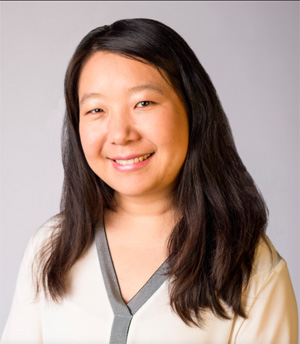Campus News
Materials theorist Yuan Ping wins grant from Air Force Young Investigator Program
Ping’s research on spin dynamics in two-dimensional materials has applications for spintronics and quantum information technologies.

The Air Force Office of Scientific Research (AFOSR) has awarded a three-year, $450,000 grant to Yuan Ping, assistant professor of chemistry and biochemistry at UC Santa Cruz. Ping is one of 36 scientists and engineers to receive grants this year through the Air Force’s Young Investigator Research Program, which recognizes young researchers who show exceptional ability and promise.
Ping is developing theoretical and computational approaches to guide the design of new materials for quantum computing and other quantum information technologies. With the new grant, she aims to develop a computational framework to investigate real-time quantum dynamics with coupled spins, electrons, photons, and phonons.
Spin is a fundamental property of electrons and other particles, and the rapidly growing field of spintronics uses spin states in a manner analogous to the use of electrical charge in electronics. Spin can be used as the basis for qubits (quantum bits) and single-photon emitters in applications of quantum information science, including quantum computation, communication, and sensing.
A key property for spintronics and quantum information science is the lifetime of the spin states, known as the spin relaxation and decoherence time. Ping’s work will answer important questions about how spin lifetime varies in two-dimensional materials. This research will also help determine design rules for tuning and constructing new 2D interfaces with ideal physical properties for spintronics and quantum information science.
The Air Force’s Young Investigator Research Program aims to foster creative basic research in science and engineering, enhance early career development of outstanding young investigators, and increase opportunities for the young investigators to recognize the Air Force mission and the related challenges in science and engineering.